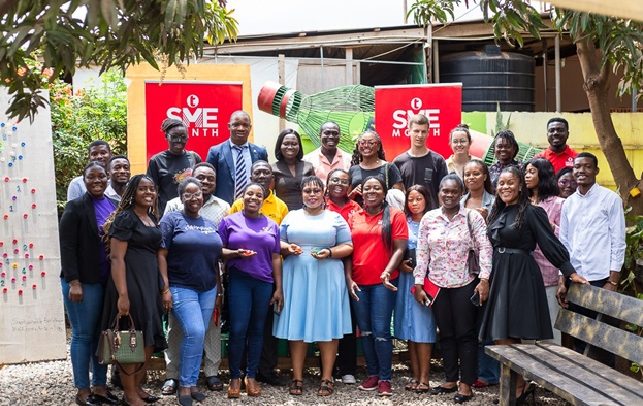Participants of the workshop
Telecel Ghana has organised an immersive workshop for some of its enterprise customers as part of the SME Month activities.
Hosted and facilitated by environmental and climate advocacy organisation, Mckingtorch Africa, the participants were enlightened on the best ways to incorporate Environmental, Social, and Governance (ESG) principles into their SMEs to drive long-term business success. The workshop also threw more light on how sustainable practices can help SMEs attract investment, grants and long-term support from global donors.
Founder and CEO of Mckingtorch Africa, Makafui Awuku gave a talk on the business case for ESG practices, design thinking for sustainable solutions and achieving sustainability within SMEs. She highlighted how SMEs can reduce waste, pursue ecological sourcing and packaging, conserve water in their operations, engage host communities, become energy efficient and employ cycling and sustainability games to spark positive environmental change.
“Profitably and sustainability are mutually inclusive. You don’t have to finish developing our business before you think about sustainability. It can be integrated as part of the core elements because sustainability is profitability. SMEs will save a lot of money from the reduction of waste, water and energy and other elements which helps the SME to be better-off in the long run,” Makafui said.
Tawa Bolarin, Director of Enterprise Business and Wholesale at Telecel Ghana, who joined one of the breakout group sessions tasked to create small lip balm containers from plastic bottles, said “It’s been an enlightening and useful hands-on sustainability workshop. I am pleased that all SMEs in attendance have learned the various ways they can add sustainable practices to their business operations.”
Patra Agbagbo is with the Business Banking division of Abii National Savings and Loans. Having participated in the workshop with other colleagues, she said they were looking to implement some of the sustainable practices on waste and utility efficiency at their finance institution.
By Samuel Boadi


